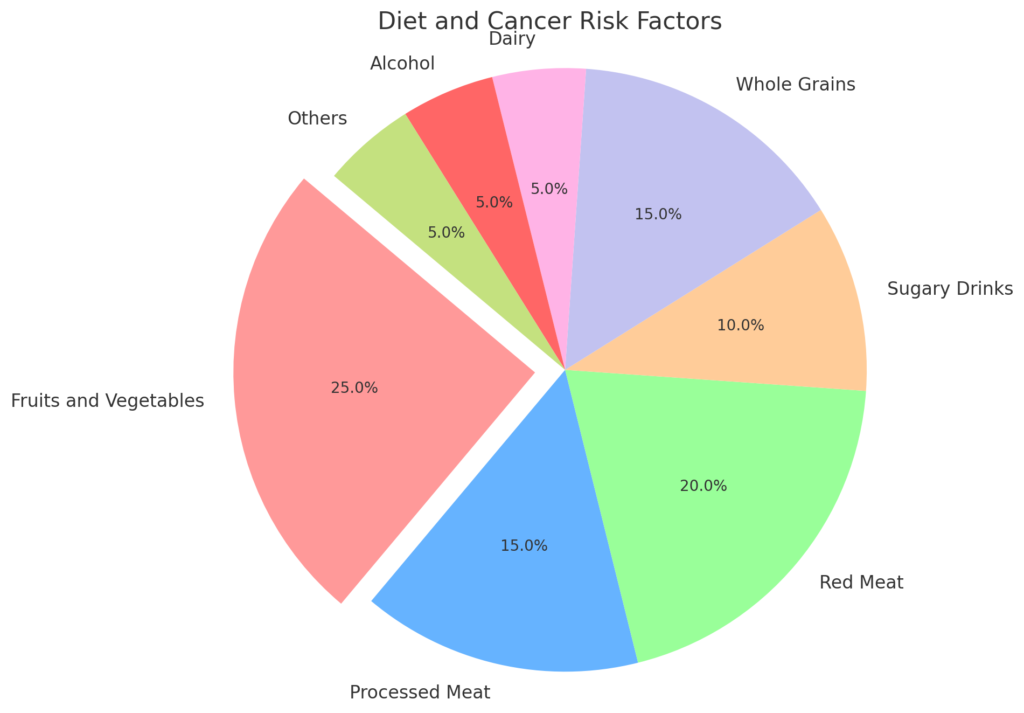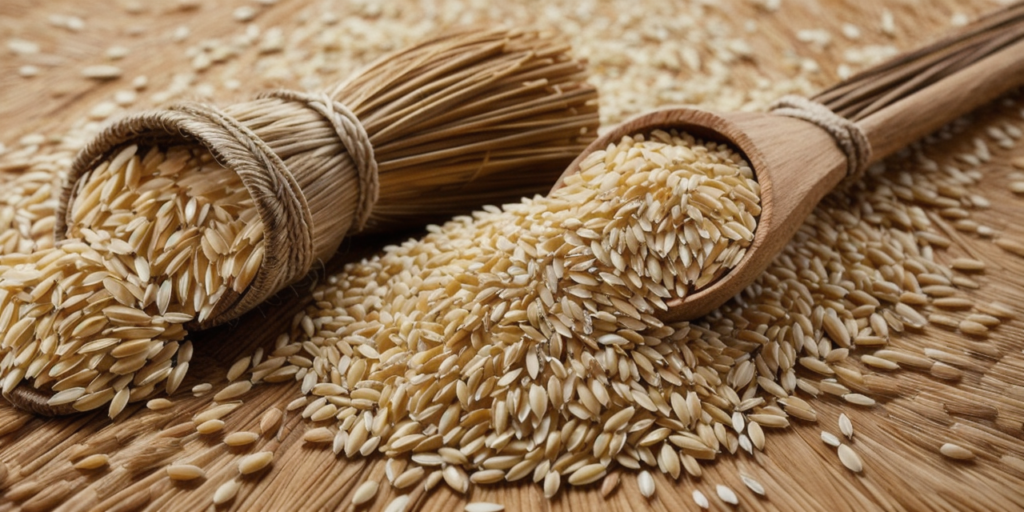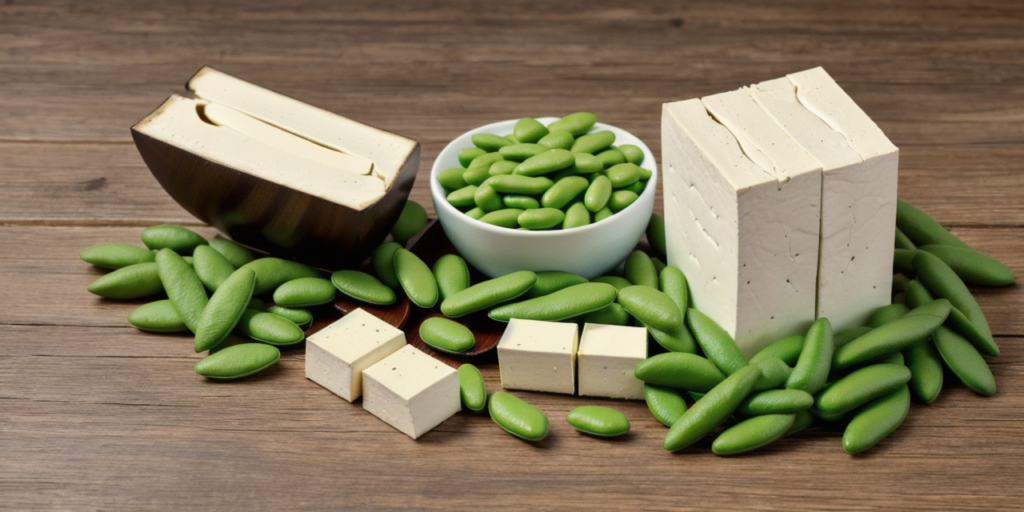Introduction
Imagine a simple, affordable, and enjoyable way to significantly reduce your risk of developing cancer. No expensive treatments or drastic lifestyle changes are required – just a few modifications to your daily meals. Intrigued? Then let’s dive into the world of plant-based eating patterns and discover their remarkable impact on cancer prevention.
Cancer is a global health concern that affects millions of people each year, so searching for preventive measures is crucial. Among these measures, diet plays an essential role in reducing the risk of various types of cancer. In fact, according to the American Institute for Cancer Research (AICR), following a plant-based eating pattern can significantly lower your chances of developing this dreaded disease.
So, what is a plant-based eating pattern? It’s a diet primarily consisting of whole grains, vegetables, fruits, and beans – foods rich in fiber, nutrients, and phytochemicals (natural substances that may help prevent cancer). The beauty of this approach lies in its simplicity and flexibility. By incorporating more plant-based foods into your daily meals, you can create a healthier life, reduce cancer risk, and enjoy delicious, wholesome dishes.
Now, let’s explore the significance of diet in cancer prevention and delve deeper into the benefits of adopting a plant-based eating pattern. Are you ready to embark on this exciting journey towards a healthier lifestyle? Let’s get started!
Understanding Cancer and Diet
It is now widely accepted that our diet plays a significant role in determining our risk of developing various types of cancer. Research has shown that certain foods can contribute to an increased risk, while others may help protect against the disease.
The Link Between Diet and Cancer
Diet influences cancer development through several mechanisms, including:
- Promoting or inhibiting inflammation: Chronic inflammation is linked to an increased risk of various cancers. Some foods, such as processed meats, promote inflammation, while others, like fruits and vegetables, have anti-inflammatory properties.
- Regulating cell growth and division: Dietary factors can influence the rate at which our cells grow and divide, with rapid or uncontrolled cell growth being a hallmark of cancer. For instance, diets high in animal protein and low in fiber may increase the risk of certain cancers due to their impact on cell proliferation rates.
- Supporting DNA repair: Our bodies are constantly repairing damaged DNA, but poor nutrition can hinder this process. Consuming foods rich in antioxidants, such as fruits and vegetables, can help protect our cells from damage and support DNA repair.
The importance of a balanced diet in cancer prevention cannot be overstated. A plant-based eating pattern, as recommended by the American Institute for Cancer Research (AICR), is one approach that has been shown to lower cancer risk. This dietary pattern emphasizes whole grains, vegetables, fruits, and beans – foods high in fiber, nutrients, and phytochemicals that help protect our bodies from cancer.

Figure 1: Diet plays a significant role in determining the risk of developing various types of cancer.
By incorporating more plant-based foods into our daily meals, we can create a healthier life and reduce the risk of cancer. Incorporate actionable tips like these into your routine for a cancer-prevention diet:
- Eat at least five servings of fruits and vegetables each day. Aim to include a variety of colors in your produce choices, as different colored foods contain different beneficial compounds.
- Choose whole grains over refined grains. Opt for brown rice, whole wheat bread, and quinoa instead of white rice, white bread, or other refined grain products.
- Limit red meat and processed meats. Try to consume no more than 18 ounces (500 grams) of cooked red meat per week and avoid processed meats like hot dogs, bacon, and sausages whenever possible.
By understanding the link between diet and cancer, you can make informed choices about the foods you eat and take proactive steps to reduce your risk of developing this dreaded disease.
Leafy Greens: A Nutritional Powerhouse for Cancer Prevention
When it comes to cancer-fighting foods, leafy greens are among the most potent options available. Rich in essential vitamins, minerals, and antioxidants, these vegetables can help protect your body from damage caused by free radicals and support overall health.
The Power of Leafy Greens
Leafy greens encompass a wide variety of vegetables, including spinach, kale, collard greens, Swiss chard, and many others. These plants are packed with beneficial compounds that contribute to their cancer-fighting properties.
Nutritional Profile of Leafy Greens
Vitamins, minerals, and antioxidants: Leafy greens contain an abundance of vitamins A, C, K, and folate, as well as minerals such as calcium, iron, magnesium, and potassium. These nutrients support various bodily functions, including cell growth, immune function, and bone health. Furthermore, leafy greens are rich in antioxidants like lutein and zeaxanthin, which help protect your cells from damage caused by free radicals.
Anti-Cancer Properties
Role of carotenoids and antioxidants in cancer prevention: Carotenoids found in leafy greens, such as spinach and kale, act as antioxidants and boost the body’s own defenses. They remove unstable molecules called free radicals from your body before they damage it. Studies have shown that carotenoids could protect against cancer of the mouth, esophagus, stomach, ovarian, endometrial, lung, and colorectal.

Figure 2: Carotenoids like lutein and zeaxanthin found in leafy greens have antioxidant properties that help protect your cells from damage caused by free radicals.
Incorporating Leafy Greens into Your Diet
To harness the cancer-fighting power of leafy greens, incorporate them into your diet with recipes and meal ideas such as a warm kale salad or steamed spinach with garlic and olive oil. Don’t stop at just one type – explore various options to enjoy the unique flavors and benefits each offers.
Here are some actionable tips for incorporating leafy greens into your daily meals:
- Start your day with a green smoothie. Blend spinach, kale, or collard greens with your favorite fruits, yogurt, and a bit of water or milk for a nutrient-packed breakfast.
- Add leafy greens to soups and stews. Stir in chopped spinach, Swiss chard, or kale into your favorite hot dishes during the last few minutes of cooking.
- Use leafy greens as a base for salads. Replace iceberg lettuce with more nutritious options like spinach, arugula, or romaine lettuce in your next salad.
By embracing the power of leafy greens, you can take a significant step toward reducing your cancer risk and improving your overall health.
Whole Grains: A Crucial Component for Cancer Prevention
Whole grains are an essential part of a balanced, cancer-preventive diet. Rich in fiber and other beneficial compounds, whole grains provide numerous health benefits and contribute to overall well-being.
Benefits of Whole Grains
Fiber and Cancer Prevention: Dietary fiber is crucial for maintaining a healthy digestive system, which plays an essential role in cancer prevention, particularly colorectal cancer. Fiber helps ensure regular bowel movements, reducing the time that potential carcinogens are in contact with colon cells. Additionally, fiber promotes gut health by feeding beneficial bacteria in the intestines, contributing to a healthy microbiome.
How fiber reduces the risk of colorectal cancer: According to the American Institute for Cancer Research (AICR), there is strong evidence that foods containing dietary fiber help protect against colorectal cancer. This protection may be attributed to improved bowel regularity, increased stool bulk, and decreased transit time in the colon.

Figure 3: Whole grains are an excellent source of fiber, contributing to their cancer-preventive properties.
Types of Whole Grains to Include
Oats, barley, quinoa: These whole grains provide a wealth of health benefits and can be easily incorporated into various dishes. Oats contain soluble fiber, which helps lower cholesterol levels and maintain steady blood sugar levels. Barley contains beta-glucan, a type of soluble fiber that supports immune function. Quinoa is a gluten-free grain packed with protein, vitamins, minerals, and antioxidants.
Simple Ways to Add Whole Grains to Your Diet
To reap the benefits of whole grains in your daily meals, consider incorporating them through breakfast ideas and snacks:
- Switch to whole-grain cereals or oatmeal for breakfast. Opt for steel-cut or rolled oats, whole grain cereals, or quinoa flakes instead of refined grain options like instant oatmeal or sugary cereals.
- Add whole grains to smoothies. Incorporate cooked quinoa or oats into your favorite fruit and yogurt smoothies for an extra fiber boost.
- Choose whole-grain snacks. Replace crackers, chips, and other refined grain options with whole grain alternatives like whole wheat pita bread, brown rice cakes, or quinoa-based snack bars.
By integrating whole grains into your diet, you can take advantage of their fiber content and cancer-preventive properties, contributing to overall health and well-being.
Soy Foods: A Potential Ally in Cancer Prevention
Soy foods have long been associated with health benefits, particularly for cancer prevention. Rich in protein, fiber, vitamins, and minerals, soy products can be a valuable addition to any diet.
The Role of Soy Foods
Soy and Breast Cancer: Concerns about soy’s role in breast cancer have been raised due to its isoflavone content – plant compounds that mimic estrogen. However, numerous studies suggest that moderate soy consumption does not increase the risk of breast cancer and may even reduce it.
Evidence supporting soy in reducing breast cancer risk: The American Cancer Society states that there is no evidence to support avoiding all soy foods if you have breast cancer. In fact, a study published in the Journal of the National Cancer Institute found that higher soy consumption during adolescence and early adulthood could reduce the risk of breast cancer later in life.

Figure 4: Soy foods, like tofu and edamame, provide an excellent source of protein and other beneficial compounds for a cancer-preventive diet.
Popular Soy-Based Foods
Tofu, edamame, and recipes: Tofu is a versatile soy product that can be used in various dishes, including stir-fries, smoothies, and scrambled “eggs.” Edamame are young soybeans commonly consumed as a snack or added to salads, soups, and rice bowls. Try recipes like scrambled turmeric tofu with greens for a nutrient-rich, plant-based meal.
Here’s an actionable tip for incorporating soy foods into your diet:
- Experiment with different soy products. Tofu, tempeh, edamame, and soymilk are all excellent sources of protein, fiber, and other beneficial compounds. Try new recipes to discover the unique flavors and textures each has to offer.
By understanding the potential benefits of soy foods for cancer prevention and incorporating them into your diet through various options like tofu and edamame, you can contribute to overall health and well-being.
Nuts and Seeds: Nutrient Powerhouses for Cancer Prevention
Incorporating nuts and seeds into your diet can be a tasty way to promote cancer prevention. Rich in protein, fiber, healthy fats, vitamins, and minerals, these small but mighty ingredients pack a powerful punch against disease.
Nutrient-Rich Nuts and Seeds
Specific Anti-Cancer Nuts: Certain nuts, like walnuts and Brazil nuts, are particularly noteworthy for their cancer-fighting properties:
- Walnuts: High in omega-3 fatty acids, antioxidants, and phytosterols, walnuts have been linked to reduced risk of breast, prostate, and colorectal cancers.
- Brazil nuts: These nuts are rich in selenium, a mineral that may help prevent cancer by protecting cells from damage caused by free radicals.
Nutrients in Nuts that Fight Cancer: Some specific nutrients found in nuts and seeds include:
- Ellagitannins: Found primarily in walnuts, these polyphenols have antioxidant properties and may reduce the risk of cancer.
- Melatonin: This hormone, found in some nuts like almonds, has been shown to possess anti-cancer qualities.
- Gamma-tocopherol: A form of vitamin E found in nuts like pistachios, gamma-tocopherol may help protect against prostate cancer.

Figure 5: Nuts and seeds offer a delicious array of nutrients with anti-cancer properties.
Easy Ways to Eat More Nuts
Incorporating more nuts into your diet can be simple and enjoyable. Consider these snack ideas and recipes:
- Create trail mix. Combine a variety of nuts, seeds, and dried fruit for a customized, cancer-preventive snack.
- Add nuts to salads. Top leafy greens with almonds, walnuts, or sunflower seeds for added crunch and nutrition.
- Make homemade nut butter. Blend your favorite nuts into smooth, spreadable butter to enjoy on toast or in sandwiches.
By understanding the cancer-fighting properties of specific nuts and seeds like walnuts and Brazil nuts, and finding creative ways to incorporate them into your diet through snacks and recipes, you can contribute to overall health and well-being.
Pulses (Beans and Lentils): A Powerful Addition to a Cancer-Preventive Diet
Incorporating pulses, such as beans and lentils, into your diet can provide numerous cancer-fighting benefits. Rich in fiber, resistant starch, phenolic compounds, and other beneficial nutrients, these versatile ingredients are an excellent addition to any healthy eating plan.
Pulses as a Cancer-Fighting Food
Fiber and Phenolic Compounds: The fiber and phenolic compounds found in pulses play crucial roles in gut health and cancer prevention:
- Gut Health: By promoting the growth of healthy gut bacteria, pulses can support overall digestive health. This may help lower the risk of colon cancer and other digestive disorders.
- Cancer Prevention: The fiber content of pulses contributes to their cancer-fighting properties by helping eliminate potential carcinogens from the body. Phenolic compounds, found in high concentrations in pulses, may also have antioxidant and anti-inflammatory effects that protect cells from damage.

Figure 6: Pulses such as beans and lentils offer valuable nutrients for cancer prevention.
Types of Pulses to Include
Some popular pulse options to consider incorporating into your diet include:
- Chickpeas: Rich in fiber, protein, and various vitamins and minerals, chickpeas are a tasty and nutritious option. Use them in salads, soups, or hummus dip.
- Lentils: These legumes provide an excellent source of plant-based protein, fiber, and essential nutrients like iron and zinc. Incorporate lentils into stews, curries, or grain bowls for a cancer-preventive meal.
- Black beans: High in antioxidants, black beans are another excellent pulse option to include in your diet. Add them to burritos, or salads, or enjoy them as a side dish.
Delicious Pulse-Based Recipes
Get creative with pulse-based recipes like this Moroccan chickpea sorghum bowl:
- Cook 1 cup of sorghum grain according to package instructions. Set aside.
- In a skillet, sauté 1 diced onion, 2 minced garlic cloves, and 1 teaspoon ground cumin in olive oil until tender.
- Add 1 can drained and rinsed chickpeas, 1 can diced tomatoes (with liquid), and salt to taste. Simmer for 20 minutes.
- Assemble bowls by layering cooked sorghum, the chickpea mixture, and your choice of veggies like sliced cucumber, cherry tomatoes, or roasted red bell pepper.
- Top with fresh herbs, lemon juice, and a dollop of yogurt or tahini if desired.
By understanding the cancer-fighting properties of pulses such as chickpeas, lentils, and black beans, and exploring delicious pulse-based recipes like the Moroccan chickpea sorghum bowl, you can contribute to overall health and well-being.
Citrus Fruits: A Zesty Addition for Cancer Prevention
Adding citrus fruits to your diet can provide a refreshing way to promote cancer prevention. Rich in antioxidants, fiber, and other beneficial compounds, citrus fruits offer valuable protection against cell damage and may lower the risk of various types of cancer.
Citrus Fruits for Cancer Prevention
Phytochemicals and Vitamins: The phytochemicals and vitamins found in citrus fruits contribute to their cancer-fighting properties:
- Antioxidant Properties: Citrus fruits, such as lemons, oranges, and grapefruits, are packed with antioxidants like flavonoids, carotenoids, and vitamin C. These powerful compounds protect cells from damage caused by free radicals.
- Cell Protection: Vitamins A and C found in citrus fruits have been shown to help prevent the formation of cancerous cells, while fiber supports gut health and eliminates potential carcinogens from the body.

Figure 7: Citrus fruits like lemons, oranges, and grapefruits can provide valuable cancer-preventive nutrients.
Top Citrus Fruits to Eat
Incorporating these citrus fruits into your diet can be simple and delicious. Consider adding these options to your grocery list:
- Lemons: High in vitamin C, fiber, and antioxidants, lemons add a tangy flavor to meals, drinks, or salads. Try squeezing fresh lemon juice on veggies for an extra boost of nutrition.
- Oranges: Rich in vitamins A, C, and B9 (folate), as well as fiber and antioxidants, oranges are a tasty snack or addition to fruit salads.
- Grapefruits: With high levels of vitamins A and C, fiber, and potent antioxidants, grapefruits make a refreshing breakfast option or salad topper.
Refreshing Citrus Recipes
Explore delicious citrus-based recipes like this Quinoa Citrus Avocado Salad:
- Cook 1 cup quinoa according to package instructions and let cool.
- Peel and slice 1 grapefruit, 1 orange, and 1 avocado. Set aside.
- In a large bowl, combine the cooked quinoa, citrus fruits, avocado slices, and ¼ cup chopped red onion.
- Prepare the dressing by whisking together 2 tablespoons olive oil, 1 tablespoon apple cider vinegar, 1 teaspoon honey, salt, and pepper to taste.
- Pour the dressing over the salad and toss to combine. Top with fresh herbs like parsley or cilantro if desired.
By understanding the cancer-fighting properties of citrus fruits like lemons, oranges, and grapefruits, and enjoying delicious citrus-based recipes like this Quinoa Citrus Avocado Salad, you can contribute to overall health and well-being.**
Berries: Nature’s Sweet Defense Against Cancer
Berries are more than just a delicious treat – they offer a wealth of health benefits, including potent cancer-fighting properties. With a variety of antioxidants, vitamins, and minerals, berries can help protect cells from damage and lower the risk of certain types of cancer.
Berries: A Sweet Defense Against Cancer
Anthocyanins and Anti-Cancer Effects: Laboratory studies have shown that anthocyanins, powerful antioxidants found in berries like blueberries and black raspberries, may have anti-cancer effects:
- Laboratory Studies on Berries: Research has demonstrated that berries can help prevent the formation of cancerous cells, reduce inflammation, and inhibit tumor growth.
- Antioxidant Properties: The antioxidants in berries, including anthocyanins, vitamin C, and ellagic acid, protect cells from damage caused by free radicals.

Figure 8: Berries like blueberries and black raspberries are packed with cancer-fighting nutrients.
Types of Berries to Include
Incorporate these potent berries into your diet for their numerous health benefits:
- Blueberries: High in vitamins C and K, fiber, and manganese, blueberries are a tasty addition to yogurt, oatmeal, or salads.
- Black Raspberries: Rich in antioxidants like anthocyanins, ellagic acid, and vitamin C, black raspberries make a delicious snack or can be added to smoothies and desserts.
Simple Berry Recipes
Discover delightful berry-based recipes like these Smoothies and Dessert Ideas:
Berry Blast Smoothie:
- Blend 1 cup frozen mixed berries, 1 banana, ½ cup Greek yogurt, 1 tablespoon honey, and 1 cup almond milk until smooth.
Blueberry-Lavender Chia Pudding:
- Combine 2 cups almond milk, ½ cup chia seeds, ¼ cup maple syrup, 1 teaspoon vanilla extract, and 1 tablespoon dried culinary lavender in a jar.
- Stir well to combine and refrigerate for at least 4 hours or overnight. Stir again before serving, then top with fresh blueberries and enjoy.
By understanding the cancer-fighting properties of berries like blueberries and black raspberries, and exploring delicious berry-based recipes like these Smoothies and Dessert Ideas, you can contribute to overall health and well-being.
Cruciferous Vegetables: Powerful Tools for Cancer Prevention
Cruciferous vegetables like broccoli and cauliflower are not only delicious but also pack a punch when it comes to cancer prevention. Rich in essential nutrients, phytochemicals, and antioxidants, cruciferous vegetables offer numerous health benefits and can help protect against various types of cancer.
The Importance of Cruciferous Vegetables
Glucosinolates and Cancer Prevention: The glucosinolates found in cruciferous vegetables like broccoli, cauliflower, and kale have been shown to possess anti-cancer properties:
- Broccoli and Cauliflower Benefits: These versatile veggies are high in fiber, vitamins C, K, and A, as well as numerous antioxidants. They also contain glucosinolates that may help reduce inflammation, inhibit tumor growth, and detoxify cancer-causing substances in the body.

Figure 9: Cruciferous vegetables like broccoli and cauliflower are rich in glucosinolates, which can help prevent cancer.
Including Cruciferous Vegetables in Your Diet
Discover creative ways to add more cruciferous veggies into your daily meals:
Creamy Broccoli Apple Salad:
- Combine 4 cups chopped broccoli, 2 peeled and diced apples, ¼ cup dried cranberries, ¼ cup chopped red onion, and ½ cup roasted sunflower seeds in a large bowl.
- In a separate bowl, whisk together ¾ cup plain Greek yogurt, 1 tablespoon apple cider vinegar, 1 teaspoon Dijon mustard, 1 tablespoon honey, and salt and pepper to taste.
- Pour the dressing over the salad and toss to combine. Refrigerate for at least 30 minutes before serving for best flavor.
By understanding the cancer-fighting properties of cruciferous vegetables like broccoli and cauliflower, and incorporating delicious recipes like this Creamy Broccoli Apple Salad into your meal plan, you can contribute to overall health and well-being.
Cancer-Fighting Beverages: Drink Your Way to a Healthier Body
While eating healthy foods plays an essential role in preventing cancer, the beverages you choose can also impact your risk. Discover how these popular drinks – coffee and tea – can help reduce cancer risk and learn daily consumption tips for enjoying them.
Cancer-Fighting Beverages
Coffee and Cancer Risk Reduction: Studies have shown that moderate coffee consumption may lower the risk of certain types of cancer, including endometrial and liver cancers:
- Research on Coffee and Endometrial/Liver Cancer: A study in the journal Cancer Epidemiology, Biomarkers & Prevention found a significant association between regular coffee consumption and a reduced risk of endometrial cancer. Another study in Clinics published by the Brazilian College of Physicians revealed that drinking at least three cups of coffee daily might lower liver cancer risk by 50%.

Figure 10: Moderate coffee consumption has been linked to reduced risks of endometrial and liver cancers.
Tea and Its Benefits: Both black and green tea contain antioxidants that have been shown to help protect cells from damage, reduce inflammation, and potentially lower cancer risk. One such antioxidant is EGCG, found in high concentrations in green tea:
- Black and Green Tea, Bladder Cancer Prevention: A meta-analysis in the International Journal of Urology revealed that drinking two or more cups of black tea per day might lower bladder cancer risk by 18%. Research published in the Journal of Epidemiology suggests that green tea consumption may reduce breast cancer risk among premenopausal women.
How to Enjoy These Beverages
Daily Consumption Tips: To make the most of these cancer-fighting beverages, follow these simple tips:
- Coffee: Enjoy 1-3 cups daily, preferably organic and brewed using a paper or metal filter (avoid plastic due to potential chemical exposure).
- Tea: Drink 2-4 cups of black or green tea daily. Choose high-quality, loose-leaf teas when possible, and steep for at least 5 minutes to maximize antioxidant content.
By incorporating these cancer-fighting beverages into your daily routine and following the consumption tips provided, you can contribute to overall health and well-being while potentially reducing your risk of certain types of cancer.
Conclusion: Making Healthy Choices to Reduce Cancer Risk
Throughout this post, we have explored the connections between diet and cancer risk reduction, focusing on specific foods and beverages that contain anti-cancer properties. By incorporating these items into your daily routine, you can contribute to overall health and well-being while potentially reducing your risk of certain types of cancer:
- Cruciferous Vegetables: Eating more broccoli, cauliflower, and other cruciferous veggies provides glucosinolates that may help reduce inflammation, inhibit tumor growth, and detoxify cancer-causing substances in the body.
- Cancer-Fighting Beverages: Moderate coffee consumption has been linked to reduced risks of endometrial and liver cancers, while both black and green tea contain antioxidants that protect cells from damage and reduce inflammation.
As you continue your journey towards a healthier lifestyle, consider these actionable tips:
- Experiment with new recipes incorporating cruciferous vegetables like broccoli or cauliflower.
- Gradually increase your daily coffee or tea intake to the recommended levels.
What other dietary changes have you made to reduce cancer risk? Share your experiences in the comments below!

